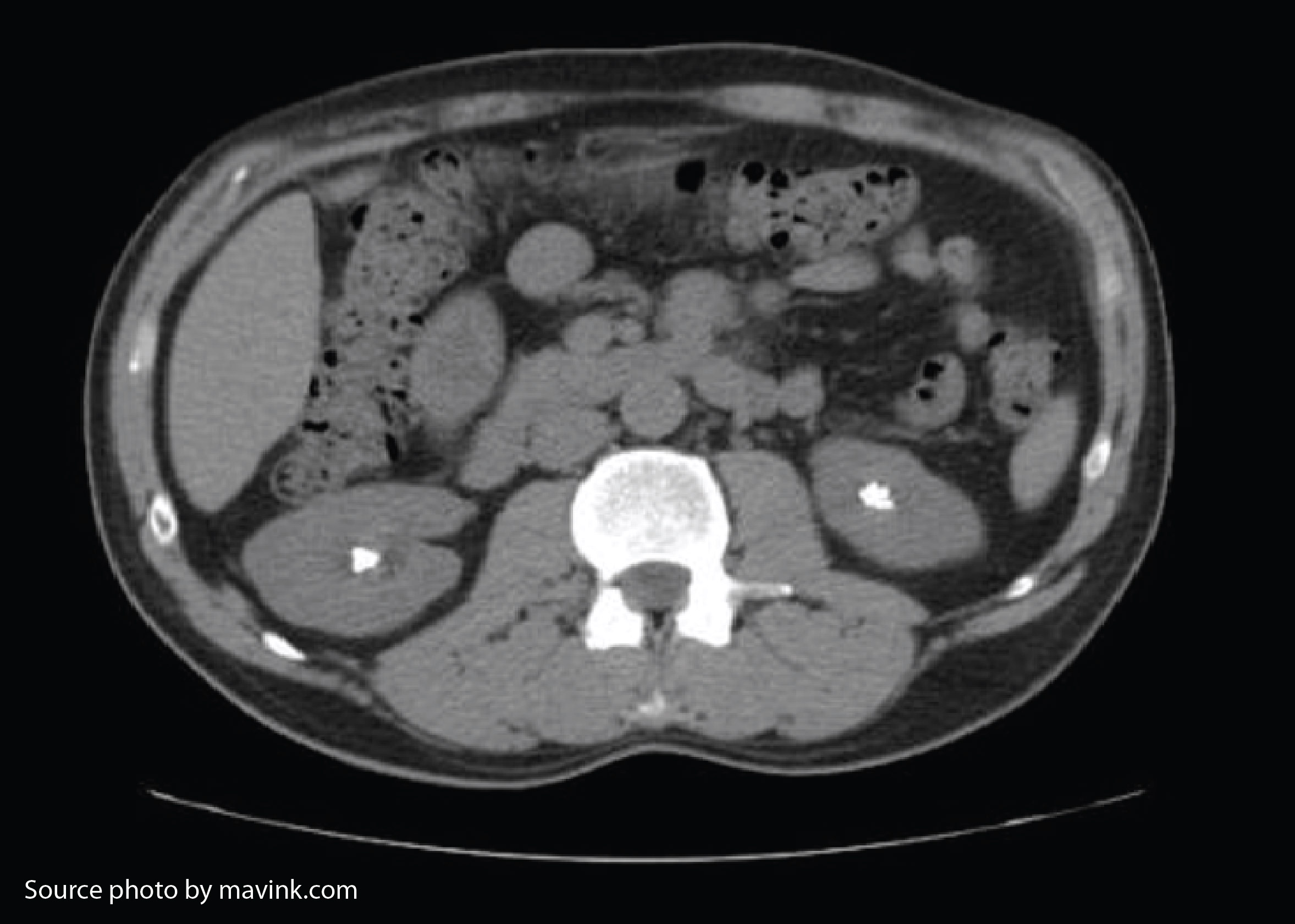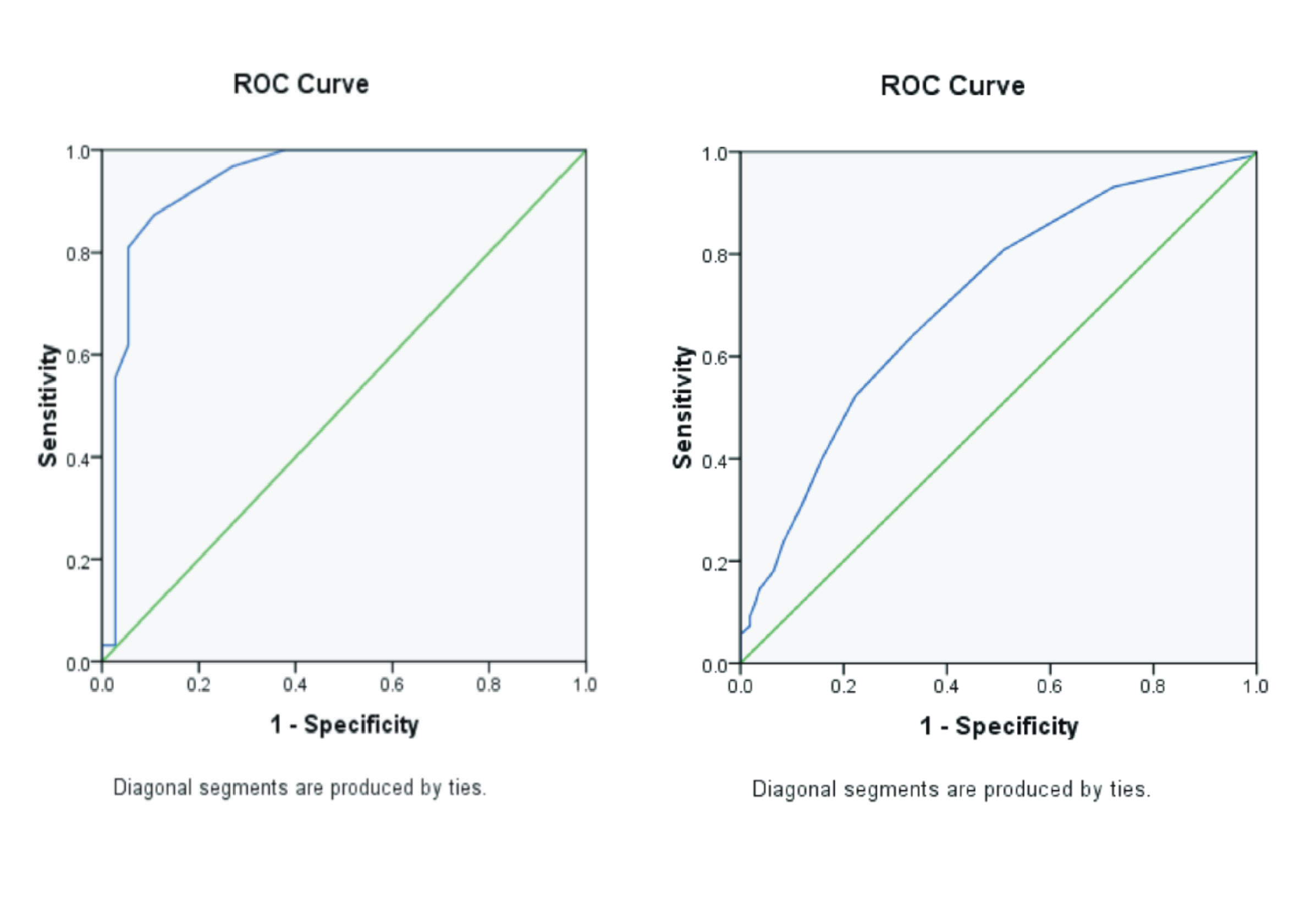ANALYSIS OF ASIR VARIATION EFFECT TO SNR ON UNENHANCED ABDOMINAL CT SCAN IN UROLITHIASIS

Downloads
Background: Adaptive Statistical Iterative Reconstruction (ASIR) reconstruction in unenhanced abdominal CT scan reduce the radiation dose from 11.6 mSv to 2.07 mSv. However, the decrease in dose is accompanied by a decrease in image quality. Signal to Noise Ratio (SNR) is one of image quality parameters. Purpose: This study aims to determine the effect of the ASIR method on the optimal Signal to Noise Ratio (SNR) value in unenhanced abdominal CT of urolithiasis in clinical data. Method: 27 samples collected and the SNR was measured on the ASIR reconstruction results at the level of 40%, 50%, 60% by placing the ROI in organ structures with different densities. Result: The results of this study indicate that the ASIR method has a significant effect on the SNR value. Based on the linear regression test, the value was 0.005 ( p<0.05) and only had an effect of 9.5% on SNR. Conclusion: It can be concluded that the ASIR method affects the optimal SNR value for unenhanced abdominal CT on urolithiasis. The ASIR 60% level was recommended.
Anam, C., Haryanto, F., Widita, R., Arif, I., 2014. Teknik Rekonstruksi Iteratif untuk Data Proyeksi Renggang (Sparse Projection Data) sebagai Upaya untuk Mereduksi Dosis CT Scan. In: Seminar Nasional Keselamatan, Kesehatan Dan Lingkungan IX. Jakarta, pp. 53–63.
Brisbane, W., Bailey, M.R., Sorensen, M.E., 2016. An Overview of Kidney Stone Imaging Techniques. Nat. Rev. Urolo 13, 654–662.
Cheng, P.M., Moin, P., Dunn, M.D., Boswell, W.D., Duddalwar, V.A., 2012. What The Radiologist Needs to Know about Urolithiasis: Part 1 - Pathogenesis, Types, Assessment, And Variant Anatomy. Am. J. Roentgenol. 198, 540–547.
Kulkarni, N.M., Uppot, R.N., Eisner, B.H., Sahani, D. V., 2012. Radiation Dose Reduction at Multidetector CT with Adaptive Statistical Iterative Reconstruction for Evaluation of Urolithiasis: How Low Can We Go? Radiology 265, 158–166.
Lee, S., Shima, A., Singh, S., Kalra, M.K., Kim, H.-J., Do, S., 2013. Co-registered Image Quality Comparison in Hybrid Iterative Reconstruction Techniques : SAFIRE and SafeCT. Phys. Med. Imaging 8668.
Nagatani, Y., Takahashi, M., Murata, K., Ikeda, M., Yamashiro, T., Miyara, T., Koyama, H., Koyama, M., Sato, Y., Moriya, H., Noma, S., Tomiyama, N., Ohno, Y., Murayama, S., 2015. Lung Nodule Detection Performance in Five Observers on Computed Tomography (CT) with Adaptive Iterative Dose Reduction using Three-Dimensional Processing (AIDR 3D) in A Japanese Multicenter Study : Comparison Between Ultra-Low-Dose CT and Low-Dose CT by R. Eur. J. Radiol. 84, 1401–1412.
Sahani, 2009. New Concept in CT Image Reconstruction ( ASIR ) in The Abdomen. Harvard Medical School.
Stiller, W., 2018. Basics of Iterative Reconstruction Methods in Computed Tomography : A Vendor-Independent Overview. Eur. J. Radiol. 109, 147–154.
Thibault, J.-B., Sauer, K.D., Bouman, C.A., Hsieh, J., 2007. A Three Dimensional Statistical Approach to Improved Image Quality for Multislice Helical CT. Med. Phys. 34, 4526–4544.
Vardhanabhuti, V., Loader, R.J., Mitchell, G.R., Riordan, R.D., Roobottom, C.A., 2013. Image Quality Assessment of Standard - and Low - Dose Chest CT using Filtered Back Projection, Adaptive Statistical Iterative Reconstruction, and Novel Model - Based Iterative Reconstruction Algorithms. Am. J. Roentgenol. 3, 542–552.
Verdun, F.R., Racine, D., Ott, J.G., Tapiovaara, M.J., Toroi, P., Bochud, F.O., Veldkamp, W.J.H., Schegerer, A., Bouwman, R.W., Giron, I.H., Marshall, N.W., Edyvean, S., 2015. Image Quality in CT: From Physical Measurements to Model Observers. Assoc. Ital. di Fis. Medica 31, 823–843.
Wang, H., Tan, B., Zhaoa, B., Liang, C., Xu, Z., 2013. Raw Data Based Iterative Reconstruction Versus Filtered Back Projection : Image Quality of Low-Dose Chest Computed Tomography Examinations in 87 Patients. Clin. Imaging 37, 1024–1032.
Willemink, M.J., de Jong, P.A., Leiner, T., de Heer, L.M., Nievelstein, R.A.J., Budde, R.P.J., Schilham, A.M.R., 2013. Iterative Reconstruction Techniques for Computed Tomography Part 1: Technical Principles. Eur. Radiol. 23, 1623–1631.
Copyright (c) 2020 Journal of Vocational Health Studies

This work is licensed under a Creative Commons Attribution-NonCommercial-ShareAlike 4.0 International License.
- The authors agree to transfer the transfer copyright of the article to the Journal of Vocational Health Studies (JVHS) effective if and when the paper is accepted for publication.
- Legal formal aspect of journal publication accessibility refers to Creative Commons Attribution-NonCommercial-ShareAlike (CC BY-NC-SA), implies that publication can be used for non-commercial purposes in its original form.
- Every publications (printed/electronic) are open access for educational purposes, research, and library. Other that the aims mentioned above, editorial board is not responsible for copyright violation.
Journal of Vocational Health Studies is licensed under a Creative Commons Attribution-NonCommercial-ShareAlike 4.0 International License














































